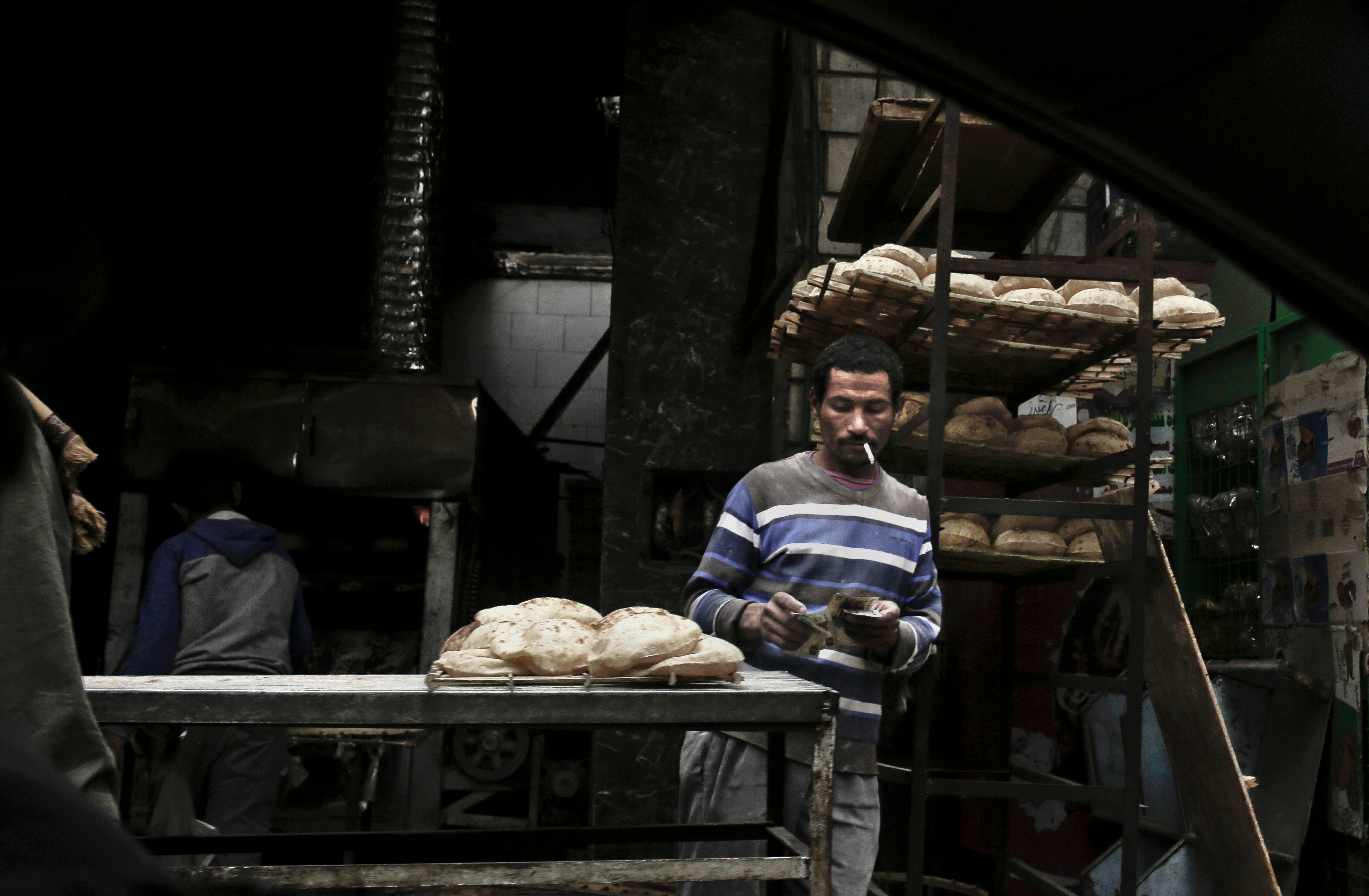Egypt president vows to increase price of subsidized bread
Egypt’s president has vowed to raise the price of government-subsidized bread

Your support helps us to tell the story
From reproductive rights to climate change to Big Tech, The Independent is on the ground when the story is developing. Whether it's investigating the financials of Elon Musk's pro-Trump PAC or producing our latest documentary, 'The A Word', which shines a light on the American women fighting for reproductive rights, we know how important it is to parse out the facts from the messaging.
At such a critical moment in US history, we need reporters on the ground. Your donation allows us to keep sending journalists to speak to both sides of the story.
The Independent is trusted by Americans across the entire political spectrum. And unlike many other quality news outlets, we choose not to lock Americans out of our reporting and analysis with paywalls. We believe quality journalism should be available to everyone, paid for by those who can afford it.
Your support makes all the difference.Egypt’s president has vowed to raise the price of government-subsidized bread. It would be the latest in a series of austerity measures taken by his government in recent years to overhaul the country’s economy.
President Abdel Fattah el-Sissi offered no further details on the amount or timing of the price increase. He said the increase would help his government cover the cost of meals provided to the country’s school children.
El-Sissi says that bread would remain subsidized, but to a lesser degree. Twenty subsidized pieces of bread cost one Egyptian pound ($0.064), while a single piece of bread usually costs between a half pound to a pound on the regular market.
The Egyptian leader spoke during the opening of a food industrial complex, Silo Foods, in the Nile Delta province of Menoufia, which would provide school meals for around 13 million children across the nation of more than 100 million people, according to the state-run Al-Ahram daily.
“It’s time for the (price of) a piece of bread for five piasters ($0.0032) to increase,” said el-Sissi. “It is not reasonable to provide 20 pieces of bread at the cost of one cigarette.”
“The price of subsidized bread loaves has been fixed for 20 or 30 years and this situation cannot continue. ... I will take responsibility for changing this situation,” he said.
El-Sissi's administration has already begun to address other hefty government subsidies, including fuel subsidies, overseen the flotation of the country's currency, and imposed a value-added tax in line with a plan stipulated by an International Monetary Fund loan. Previous Egyptian governments have attempted to reform the country's subsidy program, but progress was slow due to popular opposition, particularly when it comes to bread.
In 1977, tens of thousands of Egyptians protested and rioted in the streets against a decision by then-President Anwar Sadat to raise the price of the food staple in what became known as “The bread uprising.”
El-Sissi said his government needs 8 billion Egyptian pounds (over $509 million) to cover the costs of school children meals. The expected increase in subsidized bread, along with cuts in the allocated budged of each ministry, would help cover the costs of school meals, he said. The president also did not offer specifics on the budget cuts.
The current government's austerity measures have won it praise from economists and business leaders but the ensuing inflation has taken a heavy toll on poor and middle-class Egyptians. Meanwhile, authorities have severely restricted any criticism of the government, with thousands jailed and all unauthorized protests banned. Independent polling in Egypt is prohibited.
El-Sissi has also focused on ambitious mega-projects, building high-end housing complexes and a sprawling $45 billion new administrative capital in the desert outside Cairo The bigger goal is to revive tourism and attract foreign investment as the country recovers from the turmoil of the 2011 Arab Spring uprising that toppled former President Hosni Mubarak